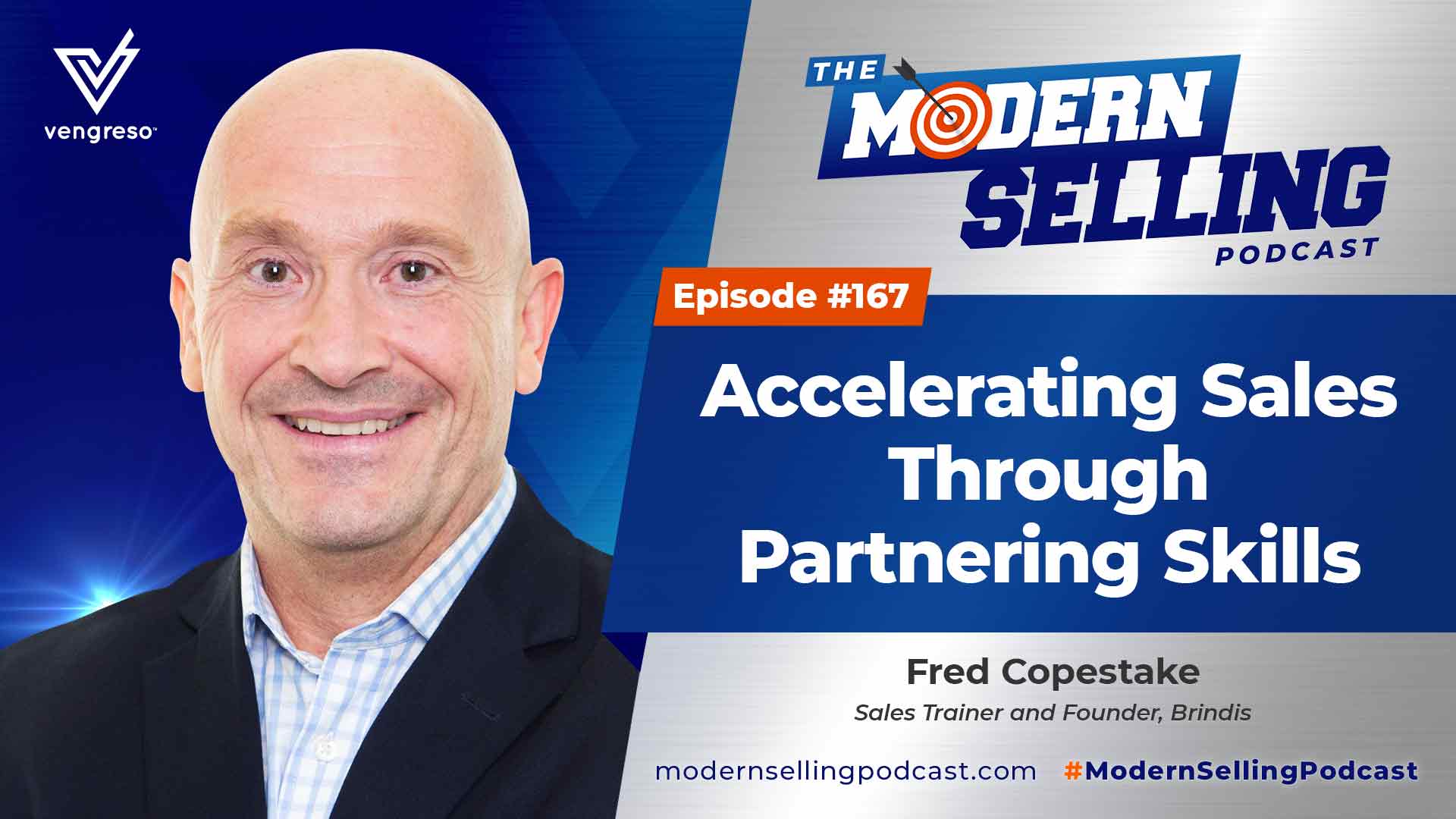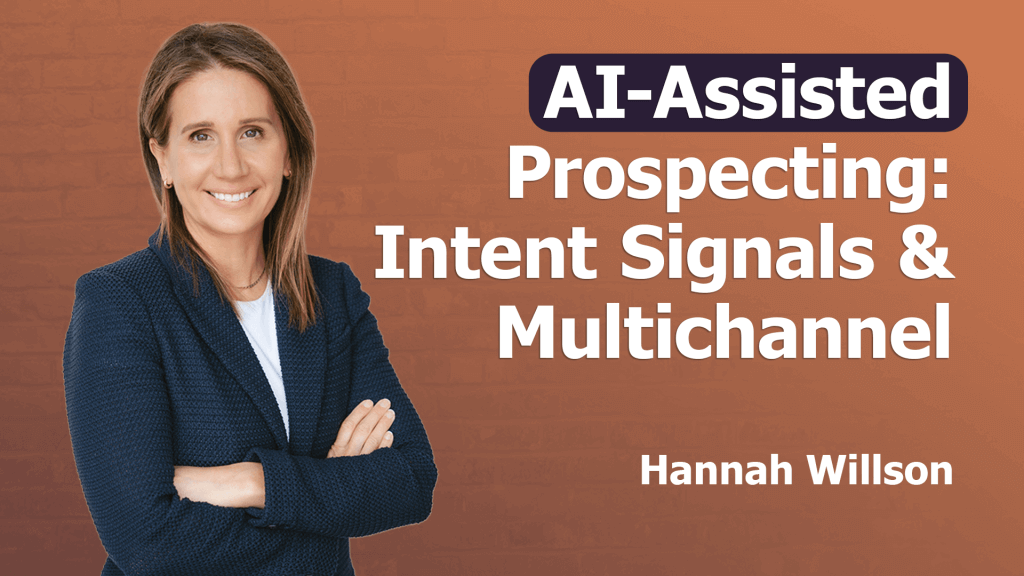Subscribe to Modern Selling on the app of your choice!
Organizations don’t partner, people do. As sales leaders in a remote selling environment, we must teach our sellers how to create successful partnerships that will ultimately increase their sales pipeline.
This is the topic of conversation with my guest in this episode of The Modern Selling Podcast, Fred Copestake.
Fred is a sales consultant, trainer, and author of Selling Through Partnering Skills, a book that looks at the evolving world of sales and sets out what people need to do to refine their approach. It explores how they can take it to the next level through understanding partnering intelligence (PQ) and using what Fred calls the VALUE Framework.
Put simply, it helps individuals and businesses improve how they sell in the modern sales environment so they will achieve better results.
The Partnering Quotient
PQ or Partnering Quotient refers to the skills that people who are good at partnering have.
PQ has the following six elements.
1. Ability to trust
Trust is the foundation of relationships and good communication. The trust equation includes credibility, reliability, and intimacy.
Fred says sellers earn trust when they do what they said they were going to do, when they are knowledgeable, and keep their buyer’s information safe.
2. Win-Win Focus
Salespeople must understand what value means to their customers, they must listen to what they want, which may be different from what the sellers offer. Both parties have to be happy with what they’re aspiring towards.
A win-win focus can also help sellers negotiate and resolve a conflict. It can help them make better decisions because they’re always focusing on trying to get that mutual benefit, that balance.
3. Comfort with Interdependence
Fred says sellers must be willing to give up a bit of control to other people because they’re going to have an impact on their success.
“I am going to have to give an element of this up,” Fred says. “As an account manager, I would say, I can’t do every single thing. I’m going to have to get my team members involved. If the customer says they’re going to do something, I have to trust them to do that.”
4. Self-Disclosure and Feedback
Self-disclosure is about the sellers giving a little bit about themselves to help clients know what their expectations are.
“You might be quite good at getting the customer to talk about what they want,” Fred says. “But we don’t always say what we want. So for this to be a good deal for us, this is how it’s got to be. Now, feedback is about getting people to tell us whether we’re doing a good job or not and whether the partnership is working. Sellers should be looking for it, they should be doing quarterly value reviews.”
5. Comfort with Change
Salespeople are change agents. They are always trying to move customers from the status quo to take risks and see the benefits of the solution being presented.
Sales leaders should train sellers to understand change and how to move clients faster through the sales process.
6. Future Orientation
Salespeople should always be looking forward, making decisions based on where they’re going rather than what they’ve always done and what might have worked in the past.
The VALUE Framework
So, how do you bring these PQ elements into a modern sales approach?
Fred says he uses the PQ elements along with traditional selling techniques and applies them using the VALUE framework.
- Validate – Is this an actual opportunity?
- Align – How can I bring some value to the relationship?
- Leverage – How do I create a good sales conversation?
- Underpin – How can I prove that this is the right way ahead and that we can work on it together?
- Evolve – How do we turn this relationship into a partnership?
Listen to this episode to learn more about the VALUE framework and how to apply it to your existing sales activities.







